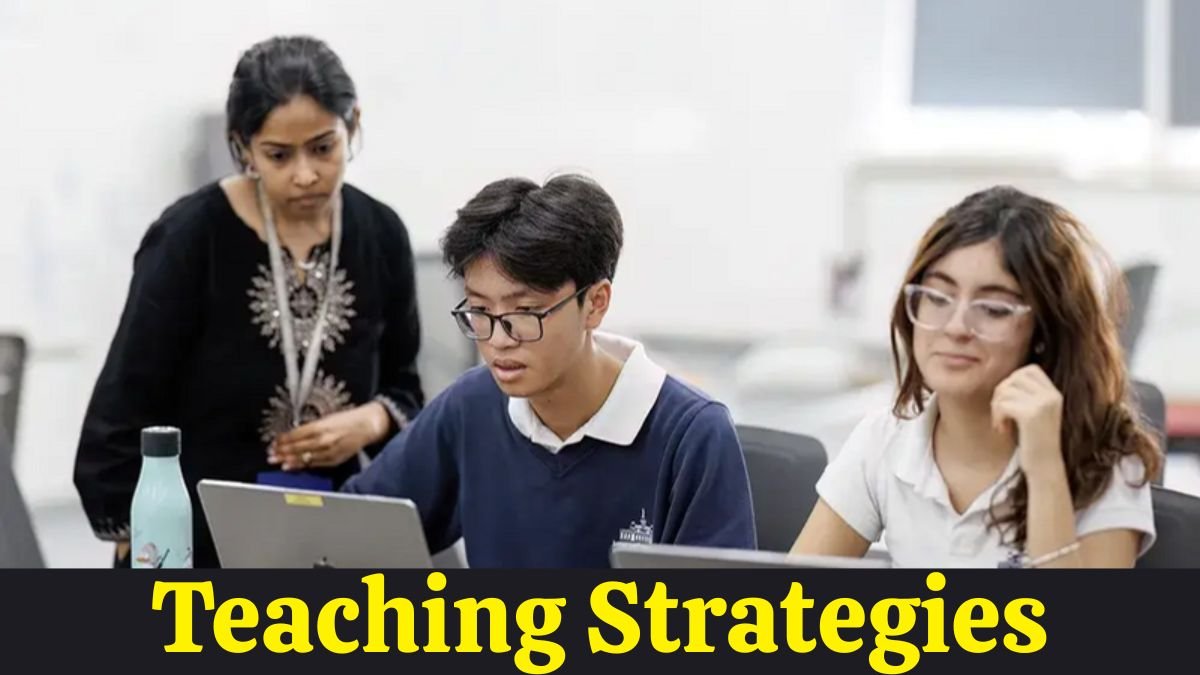Today, the education landscape is rapidly evolving. Where once classrooms relied solely on blackboards, textbooks, and lectures, digital technologies, smart devices, and interactive tools have transformed the entire learning experience. The year 2025 marks a significant milestone in this transformation. From students to teachers, education is no longer merely about acquiring knowledge; it has become a process of exploration and experiential learning. This shift has only been possible through the adoption of innovative teaching methodologies.
In this article, we will explore in detail what innovative teaching strategies are, why they are essential, and how they enhance learning outcomes.
The New Definition of Education in the Modern Era
In traditional education systems, students were often passive learners. Teachers lectured, and students listened. However, the modern era has changed this dynamic. Students now actively participate in the learning process. The aim of education is no longer merely to pass exams, but to foster critical thinking, problem-solving, creativity, and practical skills.
By 2025, this transformation will be even more evident. Education will be a blend of knowledge, experience, and skills.
Digital Technology: The New Ally of Education
Digital technology is making the biggest contribution to education today. Smart classrooms, virtual reality (VR), augmented reality (AR), artificial intelligence (AI), and e-learning platforms have made teaching and learning easier and more engaging.
For example:
Virtual reality allows students to virtually visit historical sites without leaving the classroom.
AI tools identify individual student weaknesses and provide tailored learning materials.
Online quizzes and gamification have made learning fun and engaging.
Interactive Learning: A Partnership Between Students and Teachers
A key component of innovative teaching strategies is interactive learning. Teachers and students are no longer simply “teachers and learners”; they work collaboratively. Class discussions, debates, group projects, and case studies make students more active and engaged.
This model will become even more prevalent by 2025, as students realize that their opinions and perspectives are valued.
Personalized Learning
Every student has a different learning style and interest. Previously, all students were taught in the same way. But now, the importance of personalized learning is widely recognized.
This has become possible with the help of AI and machine learning. Teachers can now track each student’s progress on a digital dashboard and assign appropriate tasks or study materials. The biggest advantage is that weaker students don’t fall behind, and brighter students get opportunities to excel.
Project-Based Learning
By 2025, Project-Based Learning (PBL) will be an integral part of education. It gives students the opportunity to work on real-world problems, such as environmental conservation, developing a startup model, or solving a social issue.
This not only provides students with theoretical knowledge but also practical experience, which helps them build their future careers.
Flipped Classroom
Another innovative strategy is the flipped classroom. In this model, students learn the basics of a topic by watching video lectures at home and then come to class to engage in practical activities, discussions, and problem-solving.
This makes better use of class time, and teachers can address students’ questions immediately.
Gamification in Education
Today’s students are heavily influenced by the world of digital games. Keeping this in mind, gamification has been introduced into education. Techniques like points, badges, and rankings are used to motivate students.
By 2025, the scope of gamification will expand further. It will be popular not only among younger children but also among college and university students. It makes the learning process competitive and exciting.
Collaborative Learning
Today, education is not limited to individual development. The ability to work in teams and collaborate is equally important. This is why group work, online forums, and discussions among peers are being encouraged.
This approach not only facilitates knowledge sharing, but also teaches students “soft skills” such as empathy, leadership, and communication.
The New Role of Teachers
By 2025, teachers will no longer be simply “knowledge dispensers.” Their role will shift to that of “facilitators” and “mentors.” Teachers will provide students with the right resources, motivate them, and monitor their progress.
At the same time, teachers will also be continuously trained in digital tools and new teaching methodologies.
A Step Towards the Future
Innovative teaching strategies are essential not only for today but also for preparing students for the future.
- In the coming years, artificial intelligence and machine learning will make education even more personalized.
- Metaverse classrooms will offer students a fully immersive virtual learning experience.
- And most importantly, education will no longer be about “learning and forgetting,” but about…It will become a process of “lifelong learning.”
Conclusion
The landscape of education is changing dramatically by 2025. This transformation is not solely due to technology, but also stems from a shift in the mindset of both teachers and students. Education is no longer limited to textbooks; it has evolved into a blend of experiences, innovation, and practical application. Innovative teaching strategies prepare students for success not only academically but also in their personal and professional lives. This is why 2025 can be considered the dawn of a new era in education.
